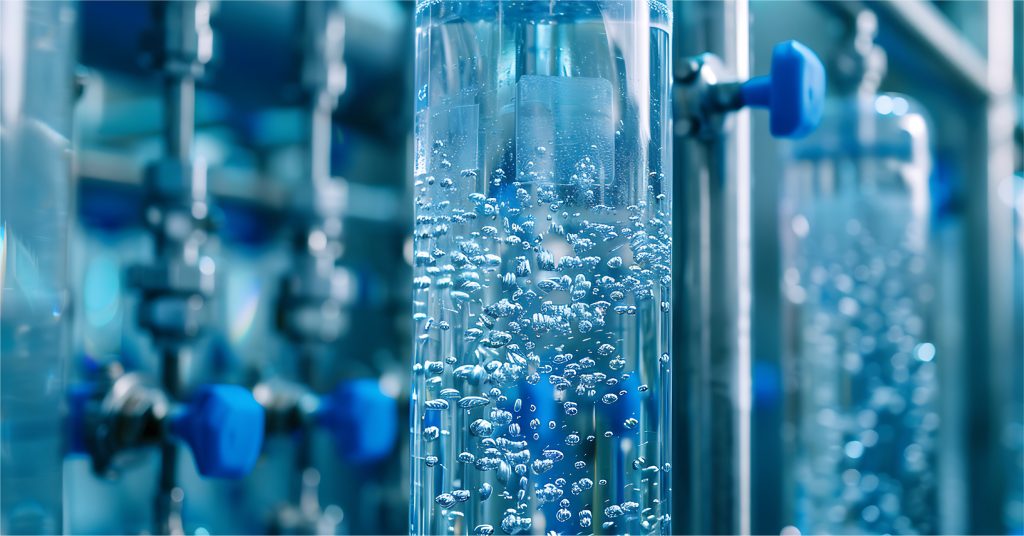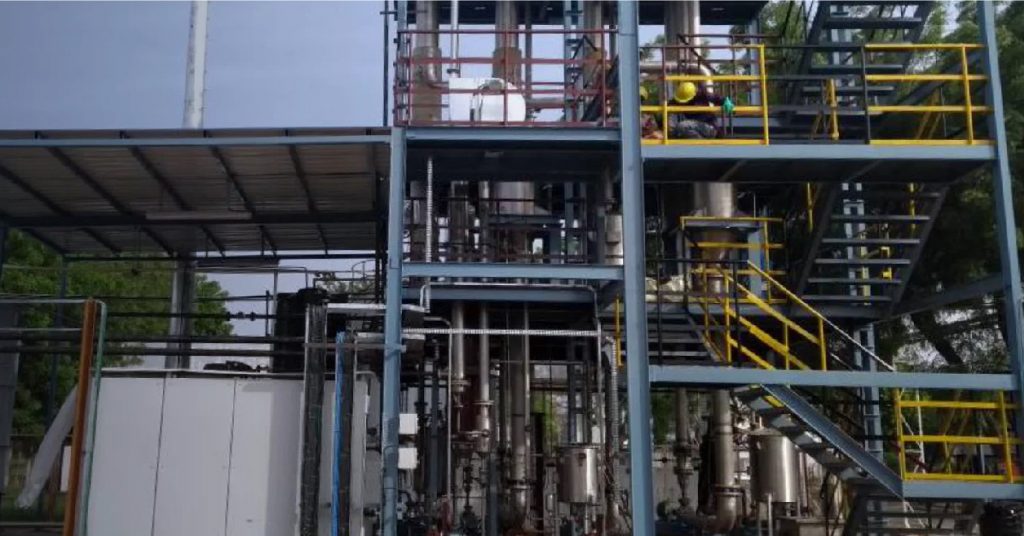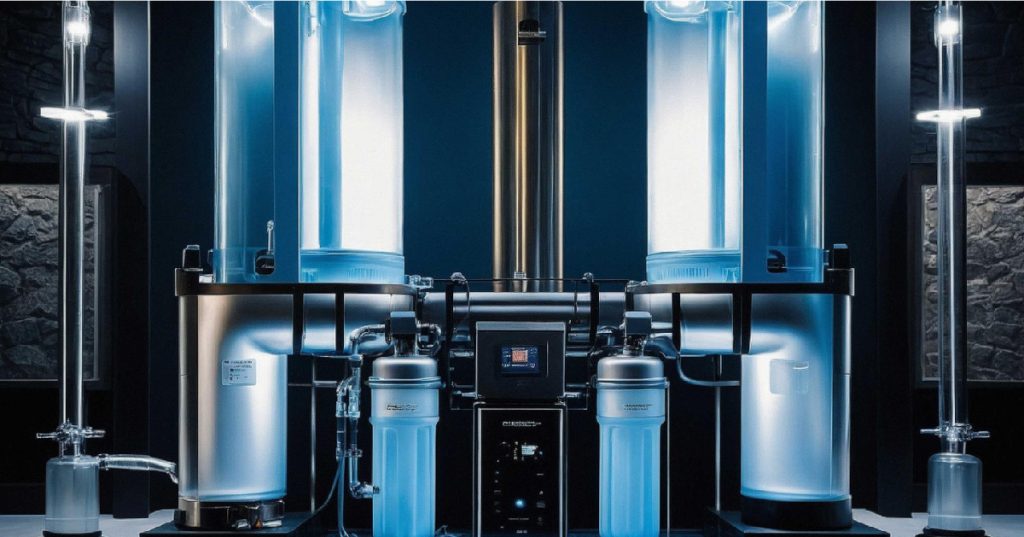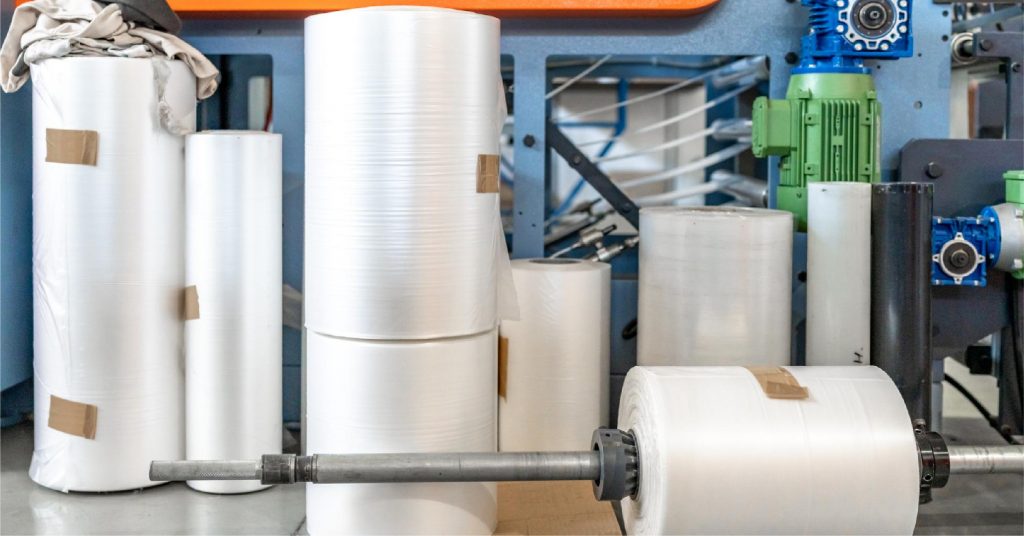Water plays a critical role in various industrial processes, from cooling and heating to manufacturing and cleaning. In South Africa, where industries are striving for efficiency and sustainability, demineralised water is becoming an indispensable resource. With its unique properties, demineralised water ensures the longevity of equipment, enhances production quality, and supports compliance with stringent industrial standards.
This blog explores why demineralised water is vital in industrial processes in South Africa, addressing common questions such as “Is demineralised water the same as distilled water,” “What is the pH of demineralised water,” and even “What happens if you drink demineralised water.” We will also discuss the importance of proper storage solutions, including the role of a demineralised water storage tank.
Table of Contents
ToggleWhat is Demineralised Water?
Demineralised water, also known as deionised water, is water that has had its mineral ions removed. This includes the removal of ions like calcium, magnesium, sodium, chloride, and sulfate. The process involves techniques such as reverse osmosis, ion exchange, or distillation, making the water free from dissolved solids and minerals.
A common question often arises: is demineralised water the same as distilled water? While both are purified, they differ in their methods of purification. Distilled water is produced by boiling and condensing the steam, while demineralised water is created by removing ions through chemical processes. Both types of water are highly purified, but demineralised water is preferred in industries for its efficiency and cost-effectiveness in large-scale applications.
Why Do Industries Use Demineralised Water?
Demineralised water is vital for various industrial applications because even trace amounts of minerals can cause equipment damage, reduce efficiency, and impact product quality. Here are some key reasons why industries in South Africa rely on demineralised water:
- Prevention of Scaling and Corrosion
Mineral deposits in water can lead to scaling in boilers, cooling towers, and heat exchangers. This reduces the efficiency of the equipment and increases energy consumption. Demineralised water eliminates these risks, ensuring smooth operations and longer equipment life. - Improved Quality of Products
In industries like pharmaceuticals, electronics, and food processing, water purity is critical. Contaminants in water can compromise product quality and safety. Demineralised water, free from dissolved salts and impurities, meets the strict standards required in these industries. - Enhanced Energy Efficiency
Demineralised water improves energy transfer in industrial processes by eliminating mineral build-up. This leads to lower energy costs and improved overall efficiency. - Environmental Compliance
Using demineralised water supports compliance with environmental regulations by minimizing the discharge of harmful substances into the environment.
Applications of Demineralised Water in South Africa
- Power Plants
In power generation, demineralised water is used as boiler feedwater to prevent scaling and corrosion in turbines and boilers. - Pharmaceutical and Medical Industries
The pharmaceutical industry requires ultrapure water for manufacturing drugs, cleaning equipment, and preparing solutions. - Electronics Manufacturing
Demineralised water is used in the production of semiconductors and other electronic components where impurities can cause defects. - Food and Beverage Industry
In food processing, demineralised water is used for cleaning, rinsing, and ingredient preparation to ensure product safety and quality. - Automotive Industry
Demineralised water is essential in processes like paint preparation and car battery manufacturing, where impurities can affect performance and appearance.
Ion Exchange: Leading the Way in Demineralised Water Solutions
INDION New Generation Swift Softener
The INDION New Generation Swift Softener is designed to remove scale-forming ions like calcium and magnesium from water effectively. Its standout feature is the shorter regeneration time, making it ideal for short-cycle operations. This lightweight and easy-to-install system boasts a quick 30-minute regeneration cycle. Assembled and tested at the factory, all units are ready for installation and commissioning within a day. With auto-operation and low maintenance, it ensures hassle-free usage. Key features include an automatic unit with a multiport valve that can withstand pressures up to 5.5 kg/cm2, a special grade of monosphere resin, low wastewater volume, and a short operating cycle of just 3 hours. It tolerates hardness up to 600 ppm and is constructed with durable fiber-reinforced plastic (FRP). Available in seven models, it offers flow rates ranging from 3.5 m3/h to 20 m3/h, catering to various requirements.
INDION Layered Bed Anion System
The INDION® Layered Bed Anion (LBA) unit is an innovative solution to maximize efficiency and minimize costs. This single-vessel system combines two types of resins, INDION LBA-WB and INDION LBA-SB, in a layered configuration with downflow service. This setup delivers the high chemical efficiency of a traditional two-bed system within one vessel, significantly reducing the need for additional equipment, piping, and valves. The result is excellent treated water quality and optimal use of regenerants, making the system both cost-effective and efficient. The INDION LBA system offers several advantages, including capital cost savings, a smaller footprint, high throughput capacity, and lower operating costs. Its contemporary design also ensures easy integration into existing systems, providing the lowest cost of production for demineralized water.
INDION Layered Bed Cation System
The INDION® Layered Bed Cation Unit is an innovative single-vessel system featuring layers of two resins. It combines INDION weak acid cation resin on top of INDION strong acid cation resin with a downflow service. This design delivers the high chemical efficiency of a two-bed weak acid cation and strong acid cation system within one vessel, eliminating the need for additional vessels, associated piping, and valves. The system enhances the chemical regeneration of the strong acid-cation resins, ensuring superior treated water quality and optimal regenerant utilization. Key advantages include capital cost savings, a lower footprint, and high efficiency in chemical usage due to its substantial throughput capacity.
INDION Elegant: Advanced Twin Bed Deioniser
The INDION Elegant system revolutionizes water treatment with its twin-bed deionised incorporating state-of-the-art counter-current flow ion exchange technology previously only available in large, custom-designed plants. Utilizing strong acid cation (SAC) and strong base anion (SBA) resins in columns, the system offers optional features like a degasser tower (DGT) and a layered bed anion (LBA) column to produce high-quality demineralized water at significantly lower capital and operating costs. The exceptionally compact, skid-mounted design on a corrosion-resistant frame includes stainless steel pumps and offers a standard range of 10–120 – 120 m³/h in either manual or PLC automatic control modes. It uses INDION uniform particle-size resins in a counter-current mode to produce water with a conductivity of 1–10 μS/cm and reactive silica of 10–30 ppb. Optional HMI provides system status read-outs, audible alarms, and no flow alarms. With a smaller footprint than conventional demineralizer plants, INDION Elegant ensures minimal installation and commissioning time and cost.
INDION SWIFT 5Gx Series: Short Cycle Rapid Regeneration
The latest INDION Swift 5Gx series brings a family of automatic twin-bed deionisers, utilizing advanced counter-flow ion exchange technology, previously exclusive to large custom plants. With a regeneration time of just 35 minutes and a minimum service cycle of four hours, the need for standby plants and large water storage volumes is significantly reduced. This exceptionally compact series is skid-mounted on a corrosion-resistant frame, which includes a stainless steel multi-purpose pump. This pump not only optimizes plant performance during service and regeneration but also offers several recirculation options to maintain high water quality in the treated water tank. Key features of the INDION Swift 5Gx series include enhanced bacterial control, reduced treated water storage costs, near-neutral effluent, and high-quality treated water with conductivity between 1-10 µS/cm. Additionally, it boasts low operating costs, a quick start-up time, and a low footprint, making it an efficient and economical solution for high-quality water needs.
INDION SWIFT Plus Demineralizer
The latest Indion Swift Plus range features advanced automatic twin bed deionizers with state-of-the-art counter-flow ion exchange technology, previously found only in large, custom-designed plants. These rapid regeneration units are volume-controlled and pre-programmed in a PLC based on the type of feed water, allowing for a swift 35-minute regeneration after a minimum service cycle of two hours. This minimizes the need for a standby plant and reduces the storage of large water volumes. The Indion Swift Plus is exceptionally compact, skid-mounted on a corrosion-resistant frame, and includes a stainless steel multi-purpose pump. Key features include mixed-bed quality water at minimal cost, an additional cation polishing stage for enhanced quality, an average resistivity of purified water at 10 MΩ·cm with neutral pH, a small footprint, and high chemical efficiency. The Swift Plus delivers up to 330 m³/day on feed water of 100 ppm total anion feed, with no need for additional regenerant chemicals and a quick 35-minute regeneration time.
INDION New Generation: Two-Bed Deionisers with Degasser Tower
The INDION Industrial Two-Bed Upflow Deionisers Type CA and CDA units are designed to meet the requirements for producing small quantities of demineralised water, with flow rates ranging from 1.0 to 15.0 m3/h. For larger demands, flow rates can be increased to 35 m3/h by installing multiple units in parallel. These free-standing, compact units are easy to install and maintain. The CA units come equipped with all necessary components for the regeneration of ion-exchange resins. Constructed entirely of plastic, they are corrosion-resistant and require minimal maintenance. The modular design allows for easy capacity enhancement, making them a flexible and efficient solution for your deionisation needs.
Conclusion
Demineralised water is a cornerstone of industrial processes in South Africa, offering unparalleled benefits in terms of efficiency, product quality, and equipment protection. Its purity ensures that industries can meet stringent quality and environmental standards while optimizing their operations. If you have wondered, if demineralised water the same as distilled water, or what is the pH of demineralised water, understanding its unique properties and applications will highlight its significance. For safe and effective storage, investing in a high-quality demineralised water storage tank is essential to maintain its purity.
Connect with Ion Exchange experts today for tailored solutions to enhance your industrial processes.





